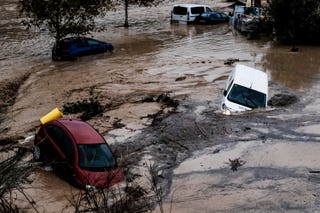
Climate change has a negative impact on . Researchers have now conducted a study to investigate the natural variation of different chickpea genotypes and their resistance to drought stress. The scientists were able to show that chickpeas are a drought-resistant legume plant with a high protein content that can complement grain cultivation systems even in urban areas.
The chickpea is currently not one of the plants mentioned above on which the global diet is currently mainly based. The international research team led by Wolfram Weckwerth has now researched the natural variations of different chickpea genotypes and their resistance to drought stress and achieved promising results. "With their high protein content and their drought resistance, legumes such as chickpeas are a food of the future.
Another advantage is that a higher proportion of legumes in a country's agricultural systems improves the overall efficiency of nitrogen use -- this also makes agriculture more sustainable," summarizes Weckwerth. We have summarized this news so that you can read it quickly. If you are interested in the news, you can read the full text here.
Read more:.










